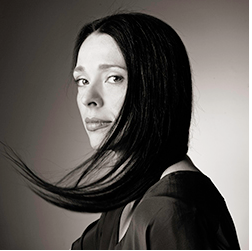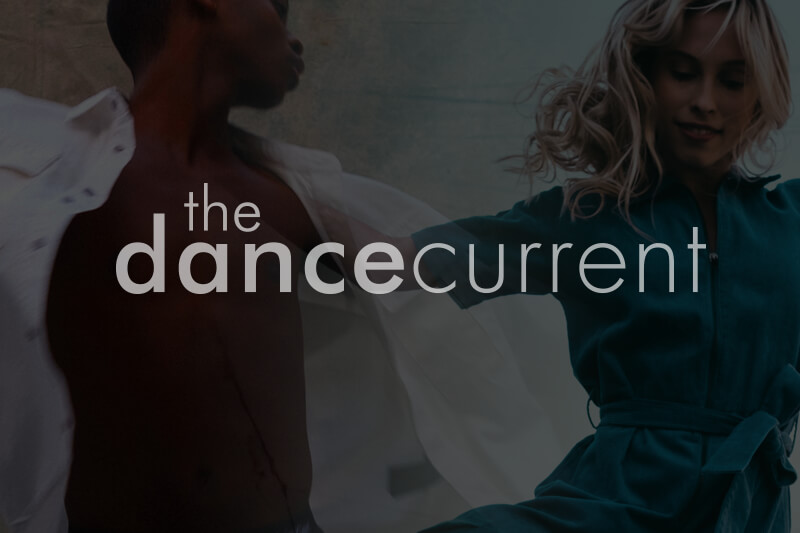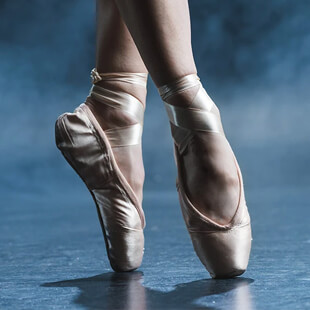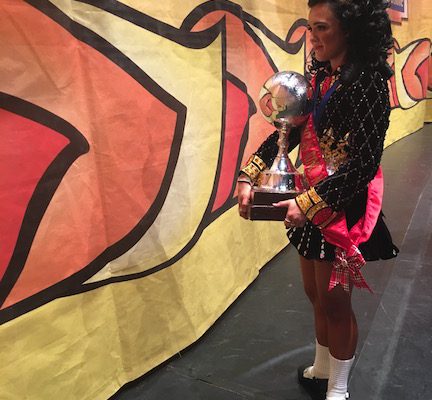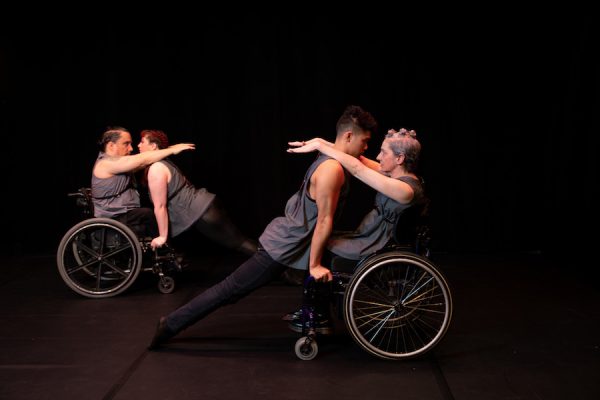Perhaps at the beginning of Catherine Hayward’s career she could’ve been described as the least likely jazz dancer. But now, this senior company dancer with Decidedly Jazz Danceworks is fierce.
The concert practice of jazz dance can be a great blend of the vernacular and Hayward is long of limb and strong beside. It really seems that her mind is in the game – she loves jazz music and expressing herself. She has technical chops and her range of motion serves her.
Originally from Winnipeg, Hayward trained at Ryerson University where she found her tribe – the same tribe as me. I have witnessed her development, and on this day she is both selfish and generous; internal and external; and social and focused. The style, as Hayward would say, is not towards the funky end of the spectrum; she’s the languid blues dancer. Her humour, dedication, focus, strength and style make her a compelling character onstage and off. She does not possess the low-down grit that I’m usually drawn to but she is undeniable.
Hayward was on tour in Juliette and Romeo when I spoke with her in the fall of 2019. I asked her some questions and she generously answered them:
Michéle Moss Why should we care about jazz dance?
Catherine Hayward Jazz is an expression of what we’re thinking and feeling, of our experiences. We should care because in today’s society we’re becoming increasingly disconnected from each other and the world around us. For some of us expressing ourselves through social media or our devices is unsatisfying and disconnected. Jazz is in my body, deeply rooted in history, a rich expression. For me communicating the music through my body is a way to speak without words and hopefully connect with others that feel the same way. Like meditation, yoga, and martial arts, I have yet to find something that speaks to me louder than the human body.
MM Art practice?
CH Art practice is exactly how it sounds, a practice. We should care because most things in life that are fulfilling, take time and practice. Things that come easily are fleeting and only give us a temporary high. Art practice has the delightful effect of continually offering new explorations, feeding our curiosity. Like peeling back the layers of an onion, something new is revealed every time you go deeper. I have a personal art practice because I want to be a lifelong student, making new discoveries and facing new challenges that will push me onwards.
MM Why do you care?
CH I care about jazz dance because it resonates with me, it challenges me, it makes me excited, it teaches me, it allows me to express myself.
MM In your experience, what can an audience member hope to walk away with from a concert experience?
CH I think an audience can hope to walk away from a concert with a reaction. It could be a thought, an emotion, a feeling, a transformation. This is what I strive to do with my work. There are absolutely no guarantees. I believe if I speak to the human condition in my work, there’s something inside everyone that can connect to what I’m saying. It may not always be in words but I aim to have the audience see something of themselves in my work.
Unfortunately, this doesn’t always happen. I often ask myself why this doesn’t happen. For me, it’s a lack of investment and rigour in the art we’re creating, yet we still want it to be impactful. We want the end result without the work. For me this doesn’t make sense. I think this comes back to society and how were overwhelmed with instant gratification. Suddenly when we have to engage, and think to respond, it becomes more difficult. We’re out of practice.
MM Why do we care so much about and give so much effort, energy and dedication to the topic of jazz?
CH We expend so much effort, energy and dedication to jazz because it holds truth inside our bodies. We feel that it expresses. We feel its synergy with music. We feel its individual expression. We feel its rootedness to the earth. We know it’s satisfying. It’s like anything delicious; once you’ve tasted it, it’s difficult to ignore the craving for more.
MM When you create work, what drives you?
CH That’s an interesting question because I’m often so detailed in creation that I temporarily lose sight of the bigger picture. I enjoy exploring a single movement and it’s capacity to communicate. Then almost like a puzzle I slowly fit the pieces together to tell a story. I think that’s also what drives me – the desire to tell my story. A story.
MM What’s most important for you as a jazz artist?
CH I think the most important thing for me as a jazz artist is individual expression. That means that although I’m in the same room with ten jazz artists (DJD company), and we’re working on the same project, we never lose our individuality inside of what we’re doing.
MM Can you describe how jazz feels in the body? In set work? In improvisation?
CH Jazz feels like a current pulsing or running through the body. A rhythmic expression. Jazz is a dichotomy; grounded yet soaring; loose and undulating, yet strong; joyful and painful; challenging and satisfying. I could go on forever. I try to feel the same about set work and improvisation, there’s always an element of freedom or letting go while being true to either the steps or body.
MM Do you have a sense that Canadians and Americans feel the same about jazz dance, its history and its expression in general?
CH I don’t have a good sense of Canadians and Americans perspective. I think this stems in part because I’m constantly surrounded by like-minded people at DJD so I’m not always exposed to other perspectives.
MM What does the future look like for jazz dance?
CH I wish I knew what the future looked like. We don’t know. But the future I will reach for will be one that tries to expose people to jazz, connect with people, and educate people. By exposing, I mean I want people to take a class, watch live performances, listen to live music, read about the history, listen to a record. Connecting with people means I want to push people to talk about all the things they are exposed to. It’s interesting how my feelings have often changed regarding a performance or concert when I learn more about the process or the artist. Perhaps instead of becoming less in tune, we look deeper and become more in tune with each other. Lastly, I want to educate or point people towards avenues they can explore based on their interest. I think the form will evolve, transform and find new expressions.
Tagged: Jazz, On the Ground, All
